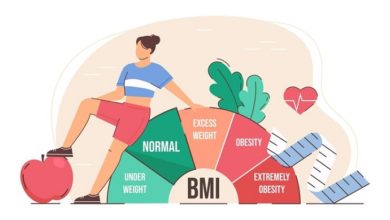Best Ways to Improve Cardiovascular Health
Effective Strategies to Have a Better and Healthy Heart

Here are the best ways to improve cardiovascular health or heart health. Improving your cardiovascular health should be a top priority, as it reduces your risk of heart disease, stroke and other serious health problems. The good news is there are many effective strategies you can incorporate into your daily life to strengthen your heart and circulation. Here are some of the best ways to boost your cardiovascular health.
Best Way to Improve Cardiovascular Health
Exercise Regularly
One of the simplest yet most impactful things you can do is engage in regular aerobic exercise. Aim for at least 150 minutes per week of activities like walking, running, biking, swimming or dancing. Aerobic exercise gets your heart pumping and improves your body’s ability to deliver oxygen to tissues. It also helps manage blood pressure and cholesterol levels. If time is limited, breaking it up into shorter sessions provides benefits too.
Manage Your Weight
Excess weight results in extra work for the heart to pump blood through the body. Even a small amount of weight loss can help lower disease risk. Focus on consuming fewer calories than you burn through diet and exercise. Aim for a healthy BMI between 18.5-24.9 if you need to lose weight.
Quit Smoking
Smoking dramatically increases your risk for heart attacks, strokes and vascular problems. It accelerates plaque buildup in arteries. Kicking the smoking habit requires commitment but gets huge rewards, as risks drop quickly after quitting. Ask your doctor about cessation options.
Reduce Stress
High stress takes a toll on physical and mental health over time. Manage stress through relaxing activities like yoga, meditation, deep breathing, spending time in nature or whatever helps you unwind. Aim to incorporate stress relief daily.
Follow a Heart-Healthy Diet
Eat an overall diet high in nutrients, fiber and healthy fats while limiting sodium, saturated fat and added sugars. Focus on whole foods emphasizing fruits and vegetables, lean proteins, whole grains, nuts and seeds, and heart-healthy fats. Limit processed junk foods. Watch portion sizes too for maintaining a healthy weight.
Hydrate Well
Staying hydrated helps body functions and delivery of nutrients. Drink water regularly throughout the day rather than waiting until you feel thirsty. Aim for roughly 8 glasses per day, adjusting according to your activity level and environment. Water has no calories and provides benefits with minimal effort.
Get Adequate Sleep
Most adults need 7-9 hours per night. Getting insufficient sleep has been linked to elevated stress hormones and worsening factors like high blood pressure and inflammation. Develop a relaxing bedtime routine to improve the quality and duration of your rest.
Control Blood Pressure
High blood pressure puts extra strain on the heart muscle and arteries. Through lifestyle changes and staying on medication if prescribed, make sure your readings are consistently below 120/80 mmHg for optimal cardiac health. Monitor it regularly with your doctor.
Manage Cholesterol Levels
Diet, exercise and medications (if needed) help control LDL “bad” cholesterol and triglyceride levels while elevating HDL “good” cholesterol levels. Work with your doctor to stay within recommended targets.
Supplement Strategically
Consider supplements like omega-3 fatty acids, magnesium, CoQ10 and vitamin D (if deficient) which research suggests may provide cardiac benefits when taken appropriately. Consult your doctor before starting any supplements.
Get Regular Checkups
See your healthcare provider and get recommended tests and screenings so any potential issues can be identified and addressed early before serious problems develop. Catching and controlling risk factors is key for long-term heart health.
Stay Socially Connected
Strong social connections and a supportive network of friends and family can positively impact cardiovascular health. Maintain meaningful relationships, engage in social activities, and seek emotional support when needed. Social support can reduce stress, promote healthy behaviors, and enhance overall well-being.
Being proactive about implementing lifestyle changes and working with your doctor are the best ways to get your cardiovascular system operating at its peak. Consistency with heart-healthy habits over time is what provides results for lowering disease risk and prolonged health.
I hope you found the article on improving cardiovascular health informative and insightful. Have you tried any of the strategies mentioned? Do you have additional tips or personal experiences to share regarding heart health? Feel free to leave a comment below and join the conversation.
Photo Credit: https://www.freepik.com/free-photo/defocused-woman-holding-heart-shape_9638051.htm








